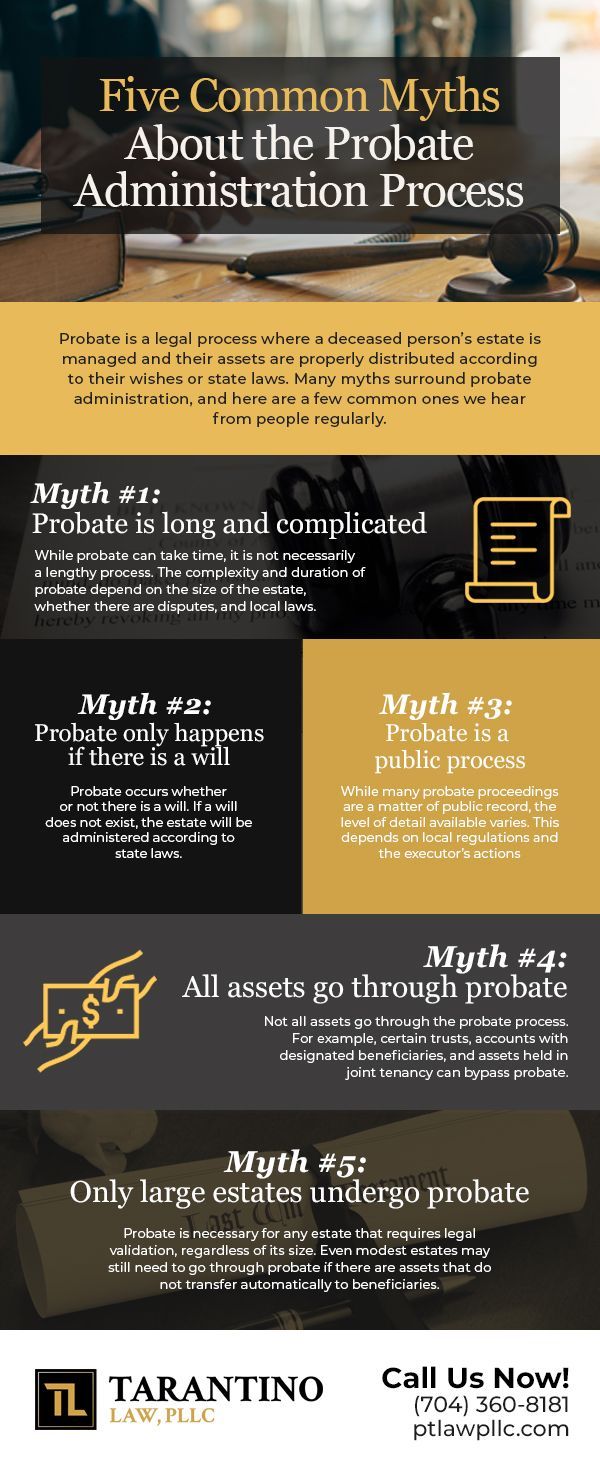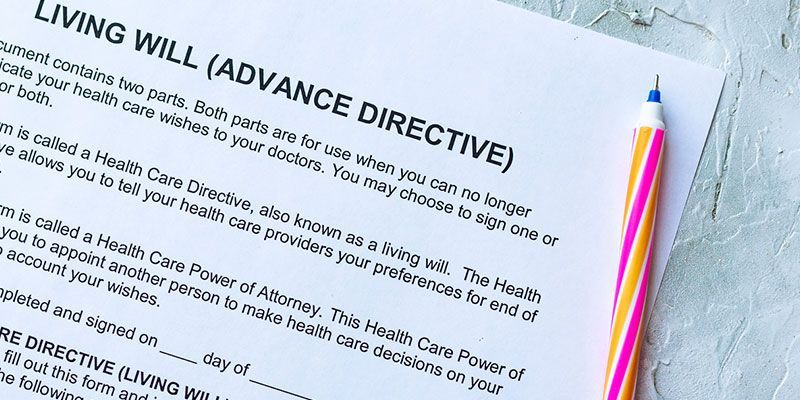Wills 101: What Not to Include in Your Will
Tarantino Law, PLLC • February 5, 2024
Wills are the foundational component of most estate plans; if you have started the estate planning process, chances are, you will begin this process by creating a will.

Wills can be a valuable tool for ensuring your assets get distributed according to your wishes following your death. However, there are several pieces of information you should avoid including in your will:
- Funeral instructions — Although you can express your burial or funeral preferences in your will, it is usually better to let your loved one know these desires separately or as part of your advance healthcare directive. In most cases, wills are read after the funeral , so including instructions for this event may not be practical.
- Conditional gifts — Avoid including gifts in your will that are conditional upon the recipient doing something specific. In most cases, the court will not enforce these conditions.
- Assets with a named beneficiary — Your bank accounts, real estate, and retirement accounts likely already have named beneficiaries attached to them. For this reason, you do not need to list them in your will.
- Assets in trusts — Any assets held in a trust are governed by the terms of the trust, not by your will. Because of this, you do not need to create a will to distribute assets held in a trust.
- Distributions to pets — Although you can express wishes for the care of your pets in your will, you cannot leave assets to your pets directly in this document. This is because animals are not considered legally capable of owning any property, despite what pop culture would have us believe.
The post Wills 101: What Not to Include in Your Will first appeared on Tarantino Law, PLLC.

Our team at Tarantino Law, PLLC, knows you care about your business, and we want to help you ensure it remains successful. If you are planning to enter into business negotiations of any kind, we encourage you to reach out to our team to find out how we can help. In this article, we’ll go […]
The post Why You Should Hire a Lawyer for Help with Business Negotiations first appeared on Tarantino Law, PLLC.

In our experience at Tarantino Lw, PLLC, there is a great deal of misinformation surrounding personal injury law. The media often paints personal injury cases as ridiculous and the claimants as greedy and stupid, both of which serve to discourage people from pursuing personal injury claims of their own. In this article, our team will […]
The post Common Misconceptions About Personal Injury Law first appeared on Tarantino Law, PLLC.

Our team at Tarantino Law, PLLC, has extensive experience in estate planning. We want to help you take steps to take care of your loved ones after you pass away. In our experience, one aspect of estate planning many people fail to consider is who will take care of their pets. If you have a […]
The post What You Need to Know About Pet Trusts first appeared on Tarantino Law, PLLC.

Probate is a legal process where a deceased person’s estate is managed and their assets are properly distributed according to their wishes or state laws. Many myths surround probate administration, and here are a few common ones we hear from people regularly. Myth #1: Probate is long and complicated. While probate can take time, it […]
The post Five Common Myths About the Probate Administration Process [infographic] first appeared on Tarantino Law, PLLC.

One of our areas of practice here at Tarantino Law, PLLC, is estate planning. This field focuses on what happens to you and your assets as you near the end of your life, and what happens after. Our team can help you take a variety of steps to ensure your wishes concerning the end of […]
The post What is a Living Will? first appeared on Tarantino Law, PLLC.

Our team at Tarantino Law, PLLC, has extensive experience in estate planning. If you are ready to start making plans for the end of your life and what happens after, we encourage you to reach out to us to schedule a consultation. In this article, we will go over a few common mistakes we see […]
The post Common Estate Planning Mistakes to Avoid first appeared on Tarantino Law, PLLC.

There are moments when navigating legal paperwork is like attempting to read a map in a foreign language. But it’s important to understand the power of attorney. A power of attorney allows you to delegate decision-making authority to someone you trust. However, did you know there is more than one type, each with a distinct […]
The post The Different Types of Powers of Attorney and Their Uses first appeared on Tarantino Law, PLLC.

Probate administration is a legal process where a deceased person’s estate is distributed to heirs and any debt owed by the decedent is paid off. Probate administration typically includes several steps, which may include: Open the Estate—A petition is filed with the probate court to open the estate, and if a will is present, the […]
The post Probate Administration: A Quick Look at the Steps in the Process [infographic] first appeared on Tarantino Law, PLLC.

A living will represents your decisions for healthcare when you are unable to voice them. Let’s examine why a living will is an essential component of contemporary healthcare planning. Express Your Healthcare Wishes. Put yourself in the scenario where a medical condition prevents you from communicating. A living will acts as your voice. It describes […]
The post The Role of a Living Will in Healthcare Planning first appeared on Tarantino Law, PLLC.

Talking about end-of-life issues is surrounded by unease and doubt. But advance directives provide clarity, like a lighthouse through the mist. These legal agreements guarantee that your desires for medical care are carried out, particularly in situations where you may not be able to express them for yourself. Let’s examine why advance directives are essential […]
The post Why You Need Advance Directives in End-of-Life Planning first appeared on Tarantino Law, PLLC.
